News
-
 Archaeology
ArchaeologyA carved rock found in Jordan may be the oldest known chess piece
The 1,300-year-old game piece, which resembles a rook, or castle, was found at an Early Islamic trading outpost.
By Bruce Bower -
 Planetary Science
Planetary ScienceRibose, a sugar needed for life, has been detected in meteorites
Samples of rocks that fell to Earth contain a key molecular ingredient of RNA, part of life’s genetic machinery.
-
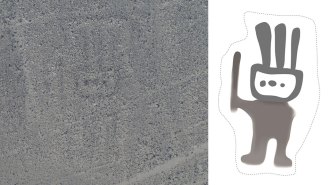 Archaeology
ArchaeologyAn AI found a hidden Nazca Line in Peru showing a humanoid figure
An artificial intelligence program designed to go through massive datasets for hints of ancient geoglyphs called Nazca Lines has discovered a new one.
-
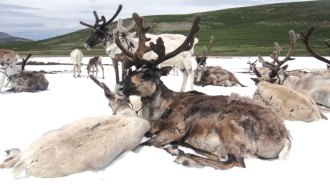 Climate
ClimateThe loss of ‘eternal ice’ threatens Mongolian reindeer herders’ way of life
Mongolian reindeer herders help scientists piece together the loss of the region’s vital “eternal ice” patches.
-
 Space
SpaceHow two gamma-ray bursts created record-breaking high-energy photons
Light packing up to 1 trillion electron volts of energy bolsters a theory for how these cosmic explosions produce such high-energy radiation.
-
 Health & Medicine
Health & MedicineDengue cases in the Americas have reached an all-time high
There have been more dengue cases in the Americas this year than ever before, according to the Pan American Health Organization.
-
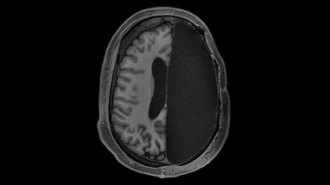 Neuroscience
NeuroscienceSome people with half a brain have extra strong neural connections
Brain scans of six people who had half their brains removed as epileptic children show signs of compensation.
-
 Life
LifeCaribou migrate farther than any other known land animal
Caribou in Alaska and Canada migrate up to 1,350 kilometers round trip each year, a study reports.
By Sofie Bates -
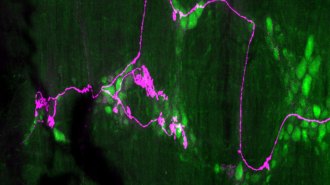 Health & Medicine
Health & MedicineFull intestines, more than full stomachs, may tell mice to stop eating
A new description of stretch-sensing nerve endings in mice’s intestines could lead to ways to treat obesity.
-
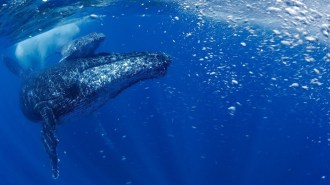 Animals
AnimalsHumpback whales in the South Atlantic have recovered from near-extinction
A new count shows the population off Brazil went from about 450 in the 1950s to some 25,000 today.
-
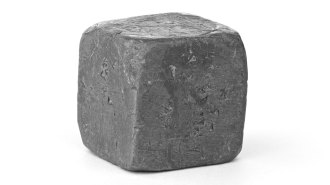 Materials Science
Materials ScienceLead becomes stronger than steel under extreme pressures
Lead is a soft metal, easily scratched with a fingernail. But that changes dramatically when the metal is compressed under high pressures.
-
 Climate
Climate5 things to know about fighting climate change by planting trees
One group’s idea of planting vast swaths of trees to curb climate change exaggerates the proposal’s power to trap carbon, some argue.
By Susan Milius